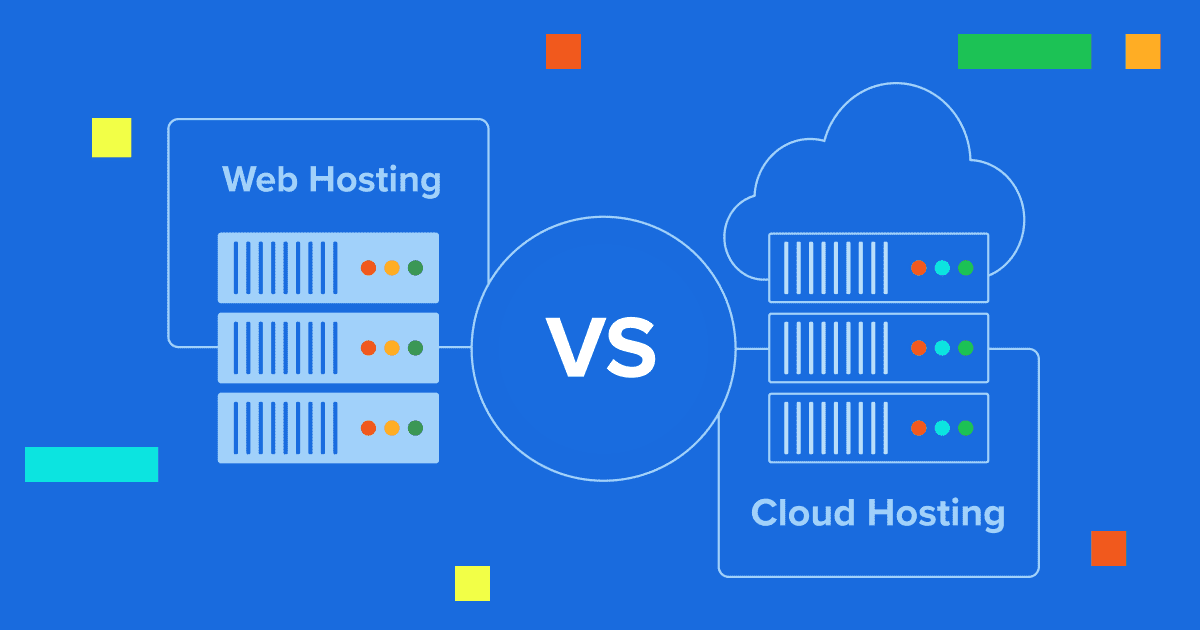Key highlights
- WooCommerce hosting averages 374-448ms load times with specialized optimization, while cloud hosting offers global distribution and instant scaling.
- Managed WooCommerce hosting provides predictable monthly fees ($3-300), cloud hosting uses variable pay-as-you-go pricing ($50-400+ monthly).
- WooCommerce hosting handles up to 100,000+ monthly visitors per plan tier, cloud hosting scales infinitely with automatic resource allocation.
- WooCommerce hosting requires minimal technical knowledge, cloud hosting demands DevOps expertise and 20+ hours weekly management.
- Both offer enterprise-grade protection, but WooCommerce hosting includes managed security while cloud requires custom configuration.
Picture this: You’ve just launched your dream online store. Orders are coming in, customers are happy–and then suddenly, your site crashes during a flash sale. This nightmare scenario highlights why choosing between WooCommerce hosting and cloud hosting matters more than you might think.
These two hosting approaches reflect completely different business philosophies entirely. Hence, you must consider your business requirements when evaluating WooCommerce hosting vs cloud hosting.
WooCommerce hosting gives you everything in one tidy package with predictable costs. Cloud hosting offers unlimited growth potential with pay-as-you-go flexibility. Let’s explore which one matches your eCommerce business vision.
What is WooCommerce hosting?
WooCommerce hosting is WordPress hosting optimized specifically for eCommerce operations. Unlike traditional web hosting, it includes specialized performance optimizations, eCommerce-specific security measures and management tools designed for eCommerce stores.
The key difference lies in database optimization. WooCommerce websites generate 3-5x more database queries than typical WordPress sites due to product catalogs, shopping carts and transaction processing.
Key features of WooCommerce hosting
- Performance optimization with object caching, database management optimizations and Redis caching delivered through dedicated servers
- Advanced security features, including PCI compliance support, SSL certificates, Web Application Firewalls (WAFs) and enhanced SSL implementation
- Pre-installed plugins worth $200-500 such as YITH Bookings, WooCommerce Subscriptions and Product Add-ons
- Automated server maintenance with WordPress and WooCommerce updates, plugin compatibility monitoring and one-click staging environments
- WordPress ecosystem access to 50,000+ plugins and unlimited customization without platform restrictions
Also read: 10 Best WooCommerce Hosting Providers in 2025 – Expert’s Pick
While WooCommerce hosting focuses on specialized eCommerce optimization, cloud hosting takes a completely different approach to web infrastructure.
What is cloud hosting?
Cloud hosting distributes your website across multiple virtual private servers in a network rather than hosting it on a single physical server. This architecture provides unprecedented scalability, reliability and global reach through distributed infrastructure.
The fundamental difference from traditional hosting lies in resource virtualization. Cloud hosting breaks down physical servers into multiple virtual machines, enabling better resource utilization and independent scaling.
Key features of cloud hosting
- Auto-scaling capabilities that automatically increase or decrease resources based on real-time demand without manual intervention
- Global network infrastructure with 20-100+ regions and edge locations in 200+ cities for reduced latency worldwide
- High availability through redundant systems and failover mechanisms that achieve 99.99%+ uptime even when server fails
- Pay-as-you-go pricing where you pay only for resources consumed, making it cost-effective for variable traffic patterns
- Enterprise-grade security with DDoS protection, encryption and compliance certifications like SOC 2 and ISO 27001
Also read: Top Cloud Hosting Providers (2025) for Startups and SMBs
Now that you understand what each hosting type offers, the question becomes: which one fits your business needs? The answer lies in understanding their fundamental differences in approach, cost structure and target use cases.
WooCommerce hosting vs cloud hosting: Key differences
The choice between these hosting types comes down to your business priorities and technical capabilities. WooCommerce hosting prioritizes simplicity and eCommerce optimization with managed services and predictable costs. In contrast, cloud hosting emphasizes unlimited scalability and customization with pay-as-you-go flexibility.
The following comparison highlights the most critical factors that will impact your decision. Each factor represents a fundamental difference in how these hosting types operate and serve different business needs.
| Factor | WooCommerce hosting | Cloud hosting |
| Best for | Small-medium eCommerce sites | Enterprise applications, high-traffic sites |
| Setup complexity | One-click installation | Requires technical configuration |
| Scalability | Plan-based upgrades | Automatic infinite scaling |
| Cost structure | Fixed monthly pricing ($3-300)* | Variable usage-based ($50-400+)* |
| Management | Fully managed (2-5 hours/week) | Self-managed (20+ hours/week) |
| Performance | eCommerce optimized (374-448ms) | Highly variable (200-2000ms) |
| Support | Specialized eCommerce support | Infrastructure support only |
* Pricing represents average estimated costs across leading providers.
As this comparison shows, WooCommerce hosting excels in simplicity and stable pricing, while cloud hosting dominates in scalability and customization. Your business size, technical capabilities and growth trajectory determine which approach aligns better with your needs.
Let’s take a look at these key differences in detail.
1. Performance and scalability comparison
Every second counts in eCommerce. Research shows that a one-second delay costs you 7% in conversions. That’s why hosting performance directly impacts your bottom line.
WooCommerce hosting comes pre-tuned for online stores. Think of it like buying a race car already optimized for your specific track. You get built-in caching, content delivery network (CDN) integration and database optimization designed specifically for product catalogs and checkout processes.
| Hosting type | Average load time | Best performance | Uptime |
| WooCommerce | 397ms | 270ms | 100% |
| Cloud (Optimized) | 200-600ms | 150ms | 99.99%+ |
| Cloud (Unoptimized) | 800-2000ms | 400ms | 99.95% |
Cloud hosting offers raw power but requires fine-tuning. It’s like having a Formula One car that needs expert configuration. When optimized correctly, cloud hosting delivers blazing speeds.
Explore Cloud hosting plans designed for high-traffic WordPress sites.
2. Scalability capabilities
Your hosting needs to grow with your business. Imagine starting with 100 daily visitors and suddenly getting featured on morning television. Can your hosting handle that spike?
WooCommerce hosting scales through plan upgrades:
- Starter stores: 10,000 monthly visitors
- Growing stores: 100,000 monthly visitors
- Enterprise stores: 500,000+ monthly visitors
Compared to WooCommerce hosting, Cloud hosting scales automatically:
- Handles traffic spikes instantly
- No manual intervention needed
- Pay only for more server resources used
- Global distribution capabilities
3. Technical specifications and resource management
Resource allocation determines how many products your site can display and how quickly pages load. It’s the difference between a smooth shopping experience and frustrated customers abandoning carts.
WooCommerce hosting resources:
- Shared plans: 1-4GB RAM, 10-100GB storage
- Managed plans: 2-8GB RAM, 20-200GB storage
- Enterprise plans: 8-32GB RAM, 50GB-1TB+ storage
Cloud hosting resources:
- Minimum: 8GB RAM, 100GB storage ($47/month)
- Standard: 16-32GB RAM, 200-500GB storage ($92-150/month)
- Enterprise: 64GB+ RAM, 1TB+ storage ($466+/month)
Database management reveals another key difference. WooCommerce hosting includes MySQL configurations optimized for product queries and inventory updates. Cloud hosting requires custom database tuning and indexing strategies.
Bandwidth and traffic handling show distinct patterns. WooCommerce hosting often includes “unlimited” bandwidth with fair usage policies. Cloud hosting charges for actual data transfer, typically $0.08-0.12 per GB after free allowances.
Ready to launch your eCommerce store without the technical headaches? Get started with WooCommerce hosting and go live in minutes.
4. Management tools and control panels
Managing your online store shouldn’t require a computer science degree. The right control panel makes the difference between spending time on marketing versus troubleshooting server issues.
WooCommerce hosting gives you user-friendly controls:
- One-click WordPress and WooCommerce installation
- Automated updates and backup management
- Staging environments for safe testing
- Built-in performance monitoring
In contrast, Cloud hosting demands technical expertise:
- Command-line interface for most operations
- Manual security implementation
- Custom deployment server configuration
- DevOps tools for automation
- Infrastructure as Code requirements for server management
This creates a clear divide between simplicity and power, but what if you need both? Bluehost’s management tools bridge this gap with enhanced control panels offering both user-friendly interfaces and advanced technical access. Our WP Cloud platform provides managed WordPress environments with enterprise cloud infrastructure benefits.
5. Cost structure differences
Money talks in business. Understanding hosting costs helps you price products correctly and maintain healthy margins. It’s not just about the monthly fee: your cost structure also shapes cash flow, budgeting, and how smoothly you can scale as you grow.
WooCommerce hosting uses predictable monthly fees:
- Entry-level: $3-10/month promotional rates
- Professional: $15-50/month with enhanced features
- Enterprise: $50-300+/month for high-traffic stores
- Hidden costs: Premium plugins ($50-300/year)
Cloud hosting charges based on usage:
- Base compute: $50-150/month typical setup
- Storage: $0.02-0.10 per GB monthly
- Bandwidth: $0.08-0.12 per GB transferred
- Additional services: Add 20-50% to base costs
Total annual costs comparison:
- WooCommerce hosting: $200-3,600 (predictable)
- Cloud hosting: $600-6,000+ (variable)
6. Security and backup solutions
Security breaches cost more than money they also destroy customer trust. Your hosting security determines whether you sleep peacefully or worry about hackers.
WooCommerce hosting includes managed protection with:
- Free SSL certificates with automatic renewal
- Web Application Firewall with eCommerce rules
- Daily malware scanning and removal
- DDoS protection up to 2 tbps
- PCI compliance support included
Cloud hosting requires custom security such as:
- Infrastructure security from provider
- Application security your responsibility
- Custom firewall configurations needed
- Advanced threat detection systems
- Compliance certifications (SOC 2, ISO 27001, etc.)
Backup strategies differ significantly too. WooCommerce hosting provides automated daily backups with one-click restoration. In contrast, Cloud hosting offers more flexibility but requires setup and management.
Understanding these differences is essential, but choosing the right hosting type requires matching these capabilities to your specific business reality. Let’s explore the decision framework.
Also read: Website Security 101: Easy Steps to Protect Your Site from Cyber Threats
Which one is best for your business?
Your hosting decision shapes everything from daily operations to long-term growth potential. The choice between Cloud hosting vs WooCommerce hosting depends on your specific business requirements, technical capabilities and growth projections.
Neither solution is universally superior – success depends on matching the hosting type to your operational reality, budget constraints and technical resources.
Choose WooCommerce hosting if:
- Your annual revenue stays under $1 million: WooCommerce hosting provides excellent value without enterprise infrastructure complexity.
- You operate with limited technical resources: Expert support teams handle WordPress and eCommerce optimization instead of requiring dedicated DevOps personnel.
- Predictable monthly costs matter for cash flow: Fixed hosting fees eliminate surprise bills from traffic spikes or resource overages.
- Your traffic patterns remain relatively stable: Plan upgrades accommodate growth without requiring dynamic scaling capabilities or daily management.
- Speed to market drives competitive advantage: WooCommerce store setup takes 1-3 days versus 1-4 weeks for cloud implementations.
- You value the WordPress ecosystem: Access to 50,000+ plugins and unlimited themes provides unmatched customization flexibility.
Choose cloud hosting if:
- Your annual revenue exceeds $1 million: Enterprise businesses benefit from advanced scalability and global infrastructure capabilities.
- You experience high traffic volatility: Automatic scaling prevents website crashes during seasonal campaigns or viral traffic spikes.
- You serve a global customer base: Edge locations and regional data centers reduce latency worldwide for optimal international performance.
- You require complex integrations: API-first architecture supports sophisticated workflows with enterprise systems and analytics platforms.
- You have dedicated technical teams: DevOps expertise enables continuous monitoring and optimization of cloud infrastructure performance and costs.
- Your business model demands unlimited scalability: High-growth companies get virtually unlimited resources on demand without infrastructure constraints.
Your hosting requirements at launch may differ significantly from what you need after achieving consistent growth or expanding into new markets. The most successful businesses plan for these transitions from the start.
Use case scenarios and migration considerations
- Startup eCommerce approach: Launch with WooCommerce hosting for quick deployment and cost control. Plan migration to cloud hosting when reaching $100K+ monthly revenue or experiencing consistent traffic spikes.
- Seasonal business strategy: Start with WooCommerce hosting during off-seasons, then migrate to cloud hosting before peak periods. Alternatively, use cloud hosting year-round if seasonal spikes exceed 10x normal traffic.
- International audience expansion: Begin with WooCommerce hosting in your home market, then migrate to cloud hosting when expanding globally. This approach balances initial costs with international performance requirements.
- Agency client management: Use WooCommerce hosting for small-medium clients and cloud hosting for enterprise accounts. This dual approach maximizes profitability while meeting diverse client needs.
- Migration timeline planning: Allow 3-6 months for WooCommerce hosting to cloud hosting migration. Complex integrations, custom development and thorough testing require adequate preparation time.
With clear decision criteria established, you’ll want to know how these hosting types translate into real-world solutions. Here’s how Bluehost delivers both approaches with nearly 20 years of WordPress expertise.
What Bluehost offer for both hosting types?
Bluehost stands as one of the WordPress.org officially recommended providers, maintaining this status since 2005 with nearly 20 years of proven expertise. We offer both specialized Cloud hosting and WooCommerce hosting solutions designed to meet different business needs.
WordPress.org endorsement reflects our commitment to WordPress community standards for speed, security and customer support. This long-standing recommendation demonstrates consistent quality and reliability in the hosting industry.
Bluehost WooCommerce hosting features
We combine WordPress expertise with premium pricing to deliver value at every business stage. Our eCommerce plans are designed specifically for growing online stores.
eCommerce Essentials starts at $6.12/month* (renewing at $18.99/month*) and eCommerce Premium at $9.95/month* (renewing at $21.99/month*). Both plans include comprehensive eCommerce tools and WordPress optimization.
Key WooCommerce hosting features:
- AI-powered setup: WonderSuite provides guided onboarding with automated site creation and content generation
- Premium plugin access: Over $600 worth of YITH eCommerce plugins, WooCommerce tools and Yoast SEO included
- Multichannel inventory management: Sync inventory across Amazon, eBay, Etsy, Shopify and 15+ marketplaces (Premium plan)
- Payment processing: Secure integration with PayPal and Stripe for reliable transactions
- Advanced eCommerce tools: One-click checkout, gift cards, product comparisons and booking systems (Premium plan)
- Performance optimization: NVMe storage, CDN integration and WordPress-specific caching
- Security suite: SSL certificates, malware scanning, DDoS protection and Web Application Firewall
- Marketing tools: Email templates, social login, affiliate management and SEO optimization
Bluehost cloud hosting capabilities
For businesses requiring enterprise-level infrastructure with managed simplicity, our cloud solutions deliver enterprise performance without complexity.
Managed Cloud hosting plans range from Cloud 10 ($49.99/month*, renewing at $75/month*) to Cloud 50 ($109.99/month*, renewing at $250/month*) with enterprise-grade infrastructure.
Key Cloud hosting features:
- 100% network uptime guarantee: Service Level Agreement with 100% availability
- High-performance infrastructure: Built on WPCloud platform, the same infrastructure powering WordPress.com
- Scalable resources: 20-150 vCPU compute power with unrestricted bandwidth and automatic scaling
- Multi-site management: Handle 10-50 websites with centralized monitoring and bulk update tools
- Premium included features: Yoast SEO Premium, global CDN and automated WordPress updates
- Advanced security: Built-in WAF protection, DDoS mitigation and daily automated backups
- Developer tools: 1-click staging, SSH access, WP-CLI and integrated API functionality
- Expert support: 24/7 priority technical support with direct WordPress specialist routing
* Pricing mentioned in this content is subject to change. Please visit our pricing pages for current rates and promotional offers.
Migration and support services
We also offer professional migration assistance for customers moving from other hosting providers to our platform. Whether you’re switching to our WooCommerce or cloud hosting solutions, our expert team ensures a smooth transition with minimal downtime.
- Free professional migration: Transfer of one WordPress site within first 30 days with zero-downtime process
- InstaWP migration tool: Self-service option simplifies migration for all users, even those without technical skills.
- 24/7 expert support: Multiple channels including live chat and phone with WordPress specialists
- Staging environments: One-click staging creation with database synchronization for safe testing
The dual approach allows businesses to start with specialized WooCommerce hosting and scale to enterprise Cloud infrastructure as growth demands increase. Both solutions maintain Bluehost’s commitment to WordPress optimization and customer support excellence.
Final thoughts
The WooCommerce hosting vs cloud hosting decision depends on your business size, technical capabilities and growth trajectory. WooCommerce hosting excels for businesses under $1M annual revenue seeking managed solutions with predictable costs, while cloud hosting shines for enterprises requiring unlimited scalability and complex integrations.
You can start with WooCommerce hosting for simplicity, then migrate to cloud hosting when growth demands justify the complexity. Success depends on choosing the right hosting solution and alignment with business requirements rather than infrastructure type alone.
Ready to choose the right hosting solution for your business? Compare Bluehost’s WooCommerce and Cloud Hosting pricing to find the perfect fit for your current needs and future growth.
FAQs
Yes, you can install WooCommerce on cloud hosting platforms, but you’ll need to configure eCommerce optimizations manually that come pre-built with best WooCommerce hosting provider services.
Yes, WooCommerce hosting is specifically designed for WordPress websites running the WooCommerce plugin. It includes WordPress-specific optimizations and WooCommerce-focused features.
Yes, cloud hosting requires DevOps expertise, server administration skills, server environment administration skills and typically 20+ hours weekly management. You’ll need knowledge of Linux, database optimization and security configuration.
Yes, migration is possible but requires 3-6 months planning, technical expertise and potential downtime. Many businesses successfully make this transition as they scale.
Cloud hosting excels at handling traffic spikes through automatic scaling, while WooCommerce hosting requires manual plan upgrades. For predictable seasonal patterns, both can work effectively.
WooCommerce hosting includes managed security (SSL, WAF, malware scanning, DDoS protection). Cloud hosting provides infrastructure security but requires you to implement application-level security measures.
WooCommerce hosting offers automated daily backups with one-click restoration. Cloud hosting requires you to configure custom backup strategies with enhanced security features.
Cloud hosting provides superior resource management with auto-scaling and custom allocation. WooCommerce hosting offers fixed resources per plan tier, which may be more predictable but less flexible when you need to share server space during traffic spikes.



Write A Comment